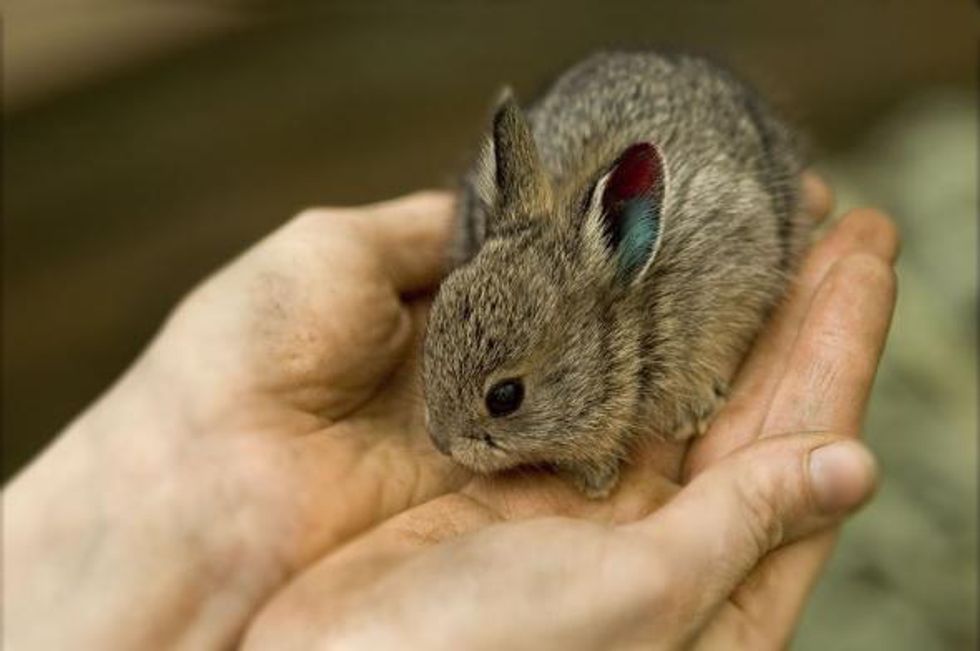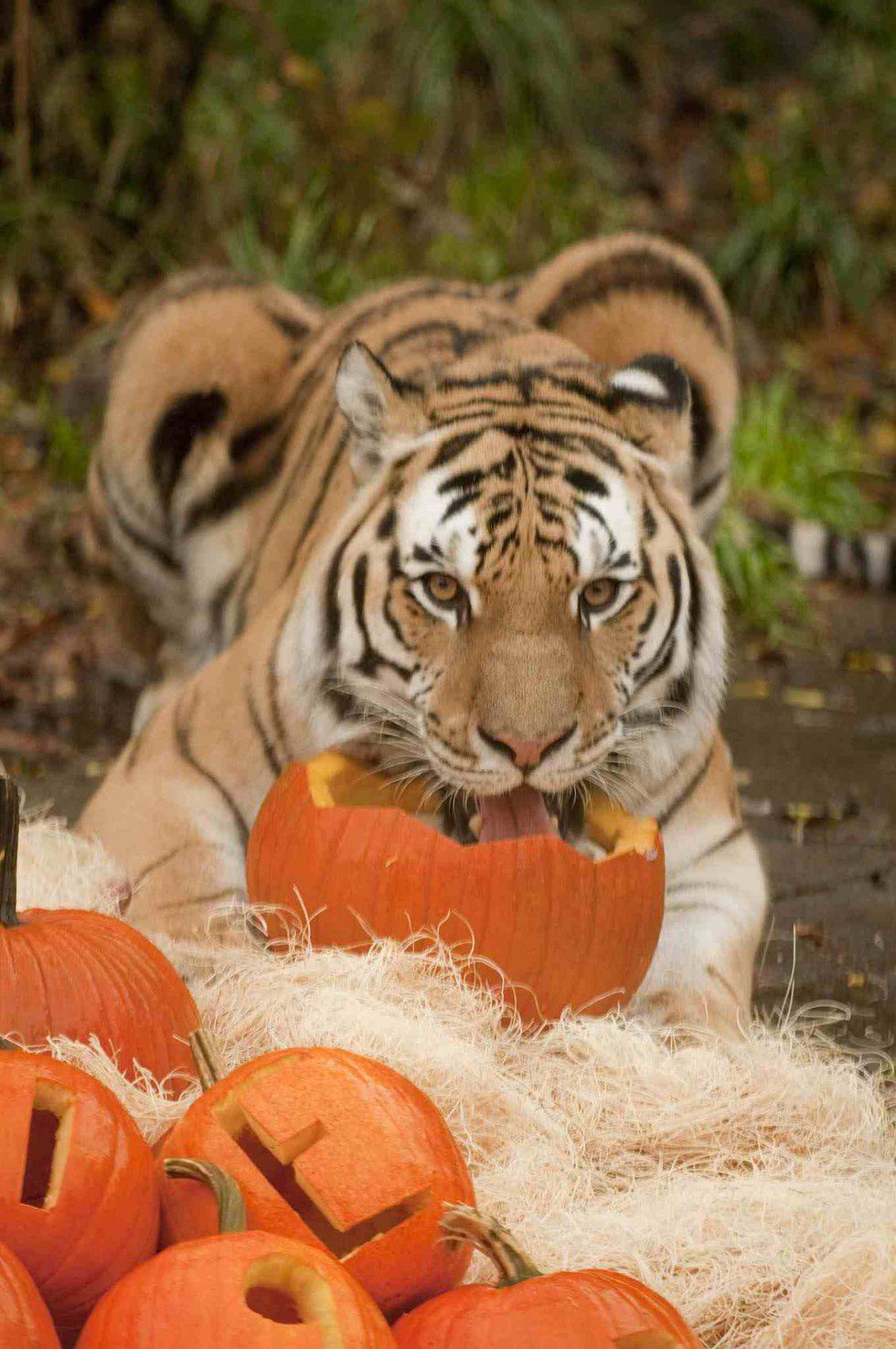I understand the mindset of vegans who choose not to eat animal products in order to maintain their ethics. If I could give up the taste, fill and comfort of animal products I would, but that's not going to work for me.
Regardless, I think animals are cool. I also think eating them is cool, and I have my own rules about what is and isn't okay to eat. Loving them and eating them are not mutually exclusive in my mind.
So when I hear a vegan (or anyone, but I definitely want vegan attention) say that zoos are the source of all evil and animals aren't meant to be kept in cages and animals deserve to run free and yadda yadda yadda, I want to put my head in my hands.
You may not be eating them, but in order to best maintain the health and future of animals, you also need to understand why zoos are the absolute best thing that ever happened to them.
I'll break it down into the basics. Zoos have four things: preservation, safety, enrichment and education. They actually have a lot more things, but this will make it simpler.
Preservation is perhaps the most important. Our world is not perfect. In a perfect world, every animal would be in its natural habitat and live a perfectly healthy life. However, people are awful. They kill and poach and traffic and destroy. Habitats are disappearing, humans are encroaching, and as much as I want to stop most of that, I can't. Until us humans disappear and nature persists without us, species are at risk of totally disappearing.
Zoos provide land just for animals. Without them, a number of animals would be extinct. The Oregon Zoo alone has revitalized populations of western pond turtles, the California condor, the Oregon spotted frog, the Oregon silverspot butterflly, the Taylor's checkerspot butterfly, and the Columbia Basin pygmy rabbit.
Which is as cute as can be.
Other species zoos have literally saved from wild extinction include Amur leopards, black leopards, clouded leopards, scimitar-horned oryx, golden lion tamarins, Puerto Riccan parrots, black footed ferrets, Przewalski horses, spray toads, and the list goes on into hundreds of species that were saved from critical endangerment, less critical endangerment, low risk endangerment, and you get the idea.
Second, safety. Animals get poached. They also die of totally preventable and treatable diseases. Zoos give them a full security staff and a full medical staff. When I worked at a zoo, I spoke to a keeper who said that animals have to be checked on every day, multiple times a day. That's better for animal survival.
Between 2014 and 2015, 70 percent of all tiger deaths in India were the result of poaching, according to Time. Animals have to be protected from stupid humans.
Third, enrichment. Here's an argument I hear a lot. "It will never be like the wild! They can never be truly free!"
Now, I am not a scientist. I am just as unfounded as most of those people are when I say that animals probably think a lot like us, but I'm going to assume that anyway. Maybe some of them like their homes at the zoo. Maybe some of them think their homes at the zoo are really awesome.
I saw a polar bear flip out when it snowed because it was so much cozier when it wasn't.
More importantly, zoos do a ton to mimic natural environment - and then some. Can animals let their guard down to play in the wild? Well, maybe sometimes, but the zoo guarantees them that opportunity. Most accredited zoos in the United States participate in extensive, daily animal enrichment.
See that tiger? That tiger is psyched about those pumpkins, and this is a typical day at the zoo I worked for.
Even zoos that have animals "perform in shows" aren't getting animals to do tricks for our mindless enjoyment. Every "show" at the Oregon Zoo was just a showcase of natural behavior, encouraged by positive reinforcement. The animals did exactly what they wanted, and yes, sometimes that meant they escaped stage to hang out in a tree. They don't get punished for doing their thing.
Fourth, education. This one is key. You know how I mentioned earlier that humans can be awful? Humans can also be taught to respect animals and try to make a difference for them. However, most humans can't afford to travel the world and see what creatures they're impacting. Zoos fill a gap that might otherwise be left drastically empty.
I call upon my own experiences growing up in and around the zoo to say that getting to see animals up close taught me to respect and appreciate them. I will also call upon the experiences of the hundreds of zoo camp students who passed by me and told me their love for animals had only increased as a result of getting to see and learn about them in a way that wouldn’t be possible without the zoo.
Zoos around the world provide education for visitors through volunteer programs like Zooteens, educational classroom programs and so on. This quote from the Association of Zoos and Aquariums really speaks for itself.
"AZA-accredited zoos and aquariums play a vital role in educating over 175 million visitors, and 12 million students in the classroom or in the field, about wild animals, their habitats, their related conservation issues, and the ways in which they can contribute to their preservation. Over the past ten years, AZA-accredited institutions have also trained more than 400,000 teachers with award-winning and proven science curricula."
So if you're looking out for the future of animals, you have got to support your local zoo. It stands between animals and a world of unnecessary tragedy.









 StableDiffusion
StableDiffusion StableDiffusion
StableDiffusion StableDiffusion
StableDiffusion Photo by
Photo by  Photo by
Photo by  Photo by
Photo by 
 Photo by
Photo by  Photo by
Photo by  Photo by
Photo by  Photo by
Photo by  Photo by
Photo by 








